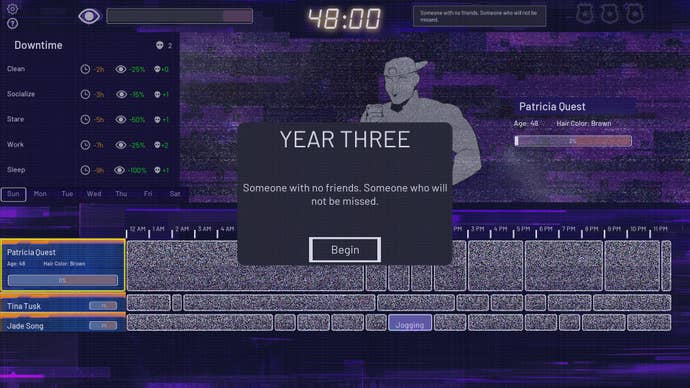Raises questions it doesn’t answer.
Few game ideas will turn your head quicker than one about abducting people and murdering them.
I don’t mind it here becauseLife Eateris a genuinely interesting indie game and not a tasteless cash-grab.

To me, it feels a bit frightened of the controversy it courts.
Time and suspicion rule everything.
Does the person you were just stalking have children?

If you think they do then like remove some of their ribs.
Does the person you were stalking live alone?
How are you supposed to know if they live alone, for example?

Which daily activity do you think would be most telling when considering whether someone lives alone, for example?
And what would a parent be most likely to do?
That’s the kind of thought process that bubbles up playing the game.

When you’ve understood one layer of the game, Life Eater then presents you with another.
Or, how about investigating someone’s life indirectly, by examining the lives of people around them?
It’s something fundamental you could’t help but be affected by.

You are snooping into someone’s life so that steal them and then kill them.
It’s a very effective idea.
But was the idea here ever anything more than to provide an arresting backdrop for a game?

What, you will wonder, does it all mean, and why are you doing these things?
What are the consequences of your actions?
But the game never really answers you.

At the climax, it’s like a door opens and all that pent-up mystery just floats away.
‘Oh, is that it?’
It’s a shame.

Perhaps it’s better not to half-arse it.
Had Life Eater found a way to bring it all together, it could have been something startling.
A copy of Life Eater was provided for review by Strange Scaffold.
